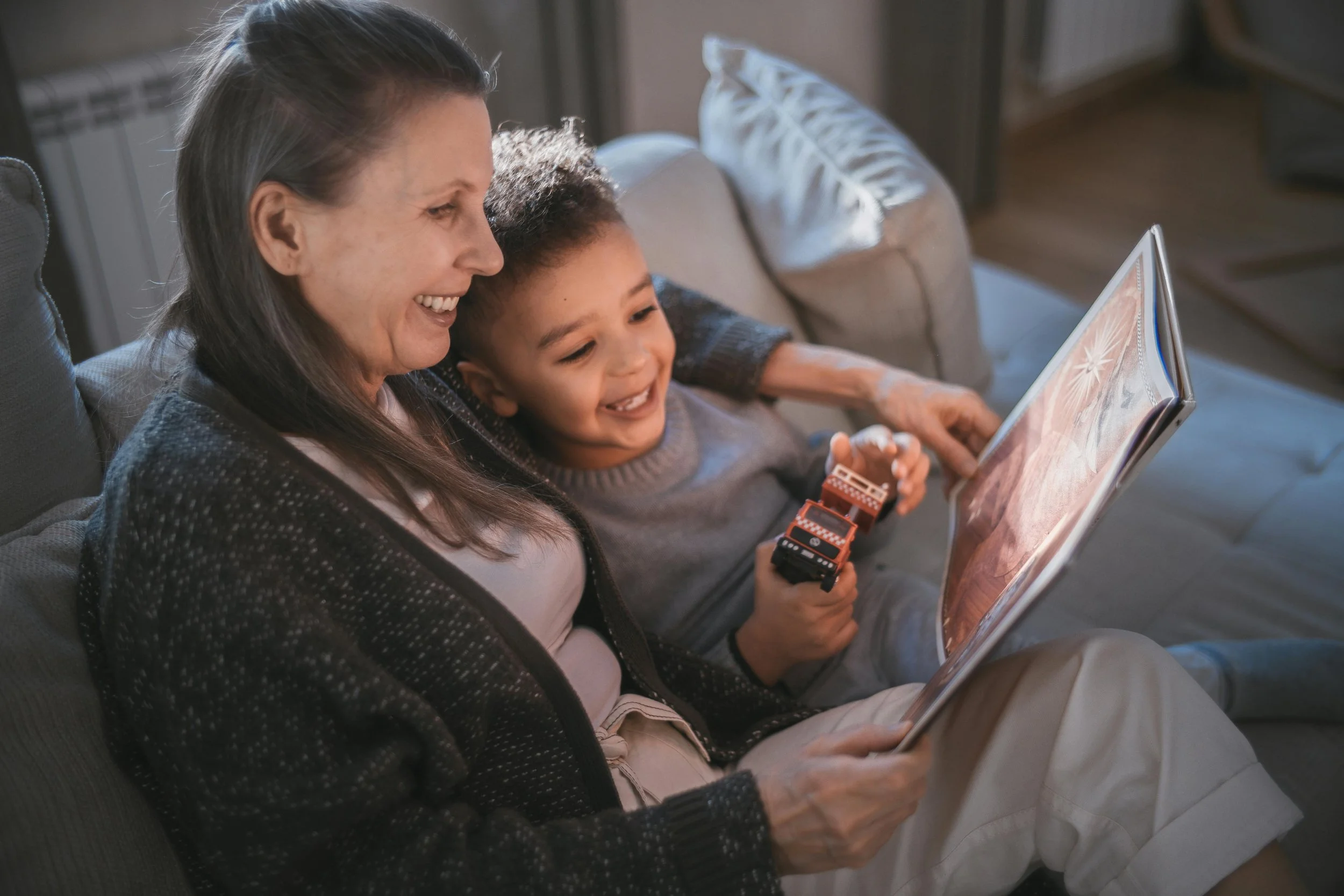Gentle Isn’t Weak: Parenting My Kids in a Trauma-Informed Way
For a long time, I believed that being strong meant being composed, stoic, and emotionally unshakeable. That’s what I saw growing up, strength equated to silence, control, and never letting your guard down. Especially in parenting, where the dominant message seemed to be: “Hold it together, no matter what.”
But as a parent myself, that version of strength started to unravel. Not because I wanted it to, but because it wasn’t sustainable. And more importantly, it wasn’t what my kids actually needed. They didn’t need a parent who was always calm they needed one who was honest, present, and willing to grow.
I Wasn’t Raised This Way
There was yelling. Silent treatments. Power struggles. Love mixed with fear. I internalized the belief that control was love, and that fear was the only way to maintain order.
So when I first heard about “gentle parenting,” I rolled my eyes. I assumed it meant being permissive. Letting kids walk all over you. Having no boundaries. It sounded naïve, even dangerous.
But now I know gentle isn’t weak. It’s regulated. It’s thoughtful. It’s rooted in a deep understanding of child development, nervous system awareness, and generational repair. It’s one of the most courageous things I’ve ever tried to practice.
Gentle Parenting Is Regulated Parenting
It takes incredible strength to pause before reacting. To breathe through the urge to yell. To respond with curiosity instead of control. Gentle parenting doesn’t mean you never get dysregulated, it means you notice it, take responsibility for it, and choose how to move forward.
That’s what I try to practice every day. Not because I always get it right, but because I know what it’s like to grow up with the opposite. I know how long it takes to unlearn the belief that emotions are dangerous, or that boundaries require fear.
Now, when my child has a hard moment, I try to stay steady. Not rigid, just rooted. I remind myself: my nervous system is the most powerful co-regulation tool I have. And when I can stay present, even imperfectly, it teaches my child that safety doesn’t require silence.
Repair Over Perfection
We don’t always stay calm. We don’t always get it right. But we come back. We repair.
I’ve learned that rupture is inevitable, especially when we're parenting while healing. But repair is where the healing lives. That’s what I want my kids to remember, not that I was perfect, but that I always tried to come back.
Repair sounds like:
"I'm sorry I yelled. I felt overwhelmed, and that wasn't fair to you."
"I didn’t handle that the way I wanted to. Can we try again?"
"You didn’t do anything wrong. I was having a hard time, and I’m working on it."
These moments don’t erase the rupture, but they rewire what comes next. They teach our kids that love and accountability can live in the same sentence.
Brave Enough to Be Gentle
Gentle parenting doesn’t mean letting everything slide. It means holding boundaries without shame. Saying no without fear. And choosing connection, even when it’s hard.
Some days, it’s the bravest thing I do.
It means letting go of what other people might think when your child is crying in public. It means standing firm with compassion, not control, when your child tests a limit. And it means being willing to say, "I need a minute," so you can return to the moment with more clarity.
Gentle parenting isn’t soft because it’s easy. It’s soft because it’s strong enough not to rely on fear.
Ready to Parent With More Presence?
Gentle parenting isn’t easy, but it’s powerful. If you’re working to parent with more presence, regulation, and repair, we’d be honoured to support you. Fill out a New Client Form to be matched with a therapist or book a free consult or appointment when you're ready.
-
No. Gentle parenting includes clear limits, but without fear or punishment. It’s about boundaries with compassion and discipline with connection. Permissiveness avoids conflict, gentle parenting moves through it with care.
-
Learn your cues. Take breaks. Practice co-regulation and self-compassion. And do your own inner work, so your child doesn’t have to carry your pain. Therapy, somatic practices, and nervous system education can help.
-
Children need consistency to feel safe. It can take time, especially if they’re used to reactive patterns. Stick with it. Stay steady. And know that it's okay to seek support for both of you.
-
It’s common for co-parents to have different parenting philosophies. Stay grounded in your values, communicate with care, and focus on modeling the approach you believe in. Small changes in one relationship can ripple outward.
You Might Also Be Interested In:
Blogs
I Thought I Had to Be Strong. Now I’m Just Real and That’s Enough for My Kids
What I Want My Kids to Know About Feelings: A Mom’s Journey Toward Emotional Safety
Services
Disclaimer: The content on this website is for informational purposes only and does not constitute medical, psychological, or mental health advice. It is not a substitute for professional care. Always consult a qualified healthcare provider for diagnosis and treatment.